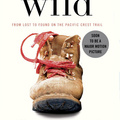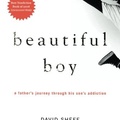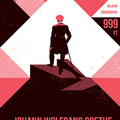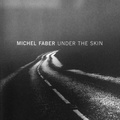Stephen King: Night Shift

I like Stephen King’s writings in general, and he has some novels I am absolutely fascinated by (such as The Dead Zone), so I started reading the short stories of Night Shift readily and with great expectations, as I know that King can be a wonderful storyteller. Unfortunately this collection was a bit of a disappointment for me. Among the 20 stories contained in the book, there are some which are awfully banal, pathetic, or simply ridiculous, and of course there are a few masterpieces as well, but the bad or uninteresting stories are in majority, so on the whole the collection made a rather negative impression on me.
What disturbed me most is the fact that King does not hesitate to borrow from the oeuvre of other authors (or should I say: steal from them?), and he does it in a completely unimpressive way. The very first story of the collection, Jerusalem’s Lot is a perfect example of this: the story is painfully similar to H. P. Lovecraft’s short story, The Rats in the Wall. The resemblance surprised me all the most as this is the only story by Lovecraft I have read so far, and this suggests to me that perhaps King builds upon Lovecraft’s work in some of his other stories as well, only I am not aware of it. Being a lover of postmodern, of course it is not the free usage of other texts which irritates me, but the fact that King does not seem to add anything of his own to his sources, so for me this is not a postmodern game, but rather a sorry example of copy-paste writing.
Apart from building heavily on other writers’ work, King also repeats himself a lot. I do not see why a book of 20 short stories needs two separate stories about rats, vertigo, haunted cities, or machines come alive. True, these are very rewarding topics for a horror-writer, and I also admit that the corresponding stories deal with ancient or quite modern human fears, but I believe that one well-written story would have sufficed in all these themes, and then perhaps I would not have felt as if I had only been wasting my time with reading another boring story of yet another ghost-ridden town or rat-scare.
In his introduction to the collection, King writes that in every work of fiction the single most important factor is the story, and not even the most intriguing characters, the most unique style or the eeriest tone can help if the reader is not spellbound by the story itself. I personally do not agree with this idea, but King’s claim certainly shows that he is aware of his abilities and the limits of his talent. I usually think that King is correct in his self-assessment and his major talent lies in creating a story, however, in Night Shift the best tales are the ones that do not entirely depend on the story value, but rather depict a certain mood or state of mind (such as Night Surf or The Man Who Loved Flowers), deal with the relationship of the characters in a mature way (The Children of the Corn), or are marked by the atypical narration (Strawberry Spring). In these stories the reader gets a few flashes of King’s true genius: his great ability to conjure a distinctive atmosphere in his work and his talent to create wonderfully absorbing characters in a few simple sentences. I have a strong suspicion that these stories will stay with me much longer than the less-then-interesting, less-then-unique pieces which are more strongly centered around the events themselves.
However, a collection of 20 which only contains 4 or 5 good pieces is not enough for me. I do not like to waste my time reading a lot of unexciting stories just to come across a gem every once in a while. And anyway, I expect more than this from Stephen King.
Of course King himself does not claim to be a literary genius, and the stories in Night Shift can prove to anyone in doubt that King is indeed only a literary craftsman in most of the cases, someone who usually knows how to put a story together to make it work, but who can hardly be called an artist. Again, this is not a fault in itself, but here the pieces King uses to build his stories are often far too obvious, and this spoils the reading experience.





